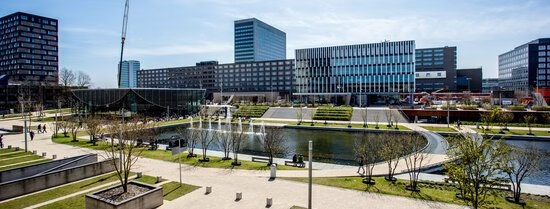The study programme in a nutshell
This website is under construction. The study contents and course programme may be further adjusted and specified.
Throughout the year you will follow different courses building up to the Bachelor thesis. You are offered substantive courses in which philosophical theories and methods are provided and applied to current challenges and debates. You will learn to approach these in a critically constructive way, you are encouraged to incorporate multiple perspectives and develop your own vision and philosophical thinking style.
You will follow a continuous learning track throughout the year, where you’ll acquire and refine academic skills and reflect on your own learning process and personal development with mentors and peers. Your individual learning goals within these tracks will be tailored to your individual pre-knowledge and skills.
What the programme entails
The programme includes a set of mandatory and elective courses providing you with fundamental philosophical knowledge and offering insights into their application to concrete societal challenges and topical questions. Parallel to the core courses, you will follow a philosophical skills track, combined with personal mentoring, throughout the year. In combination with the substantive courses, this track prepares you for your Bachelor thesis, in which you will discuss a concrete societal problem, or a contemporary philosophical question of your own choice linked to one of the four clusters of the MA “Philosophy .
Courses
Block 2
You can choose one of four courses that provide you with an advanced training of your academic skills. In these courses, students develop their own research projects. Pre-Master students will complete the course with a special assignment: a presentation of their research results either translated into ‘public philosophy’ or into ‘policy advice’. This prepares you for the “From Theory to Practice” track of the MA Philosophy.
Block 3
Choose two from these three EUR-discipline courses:
